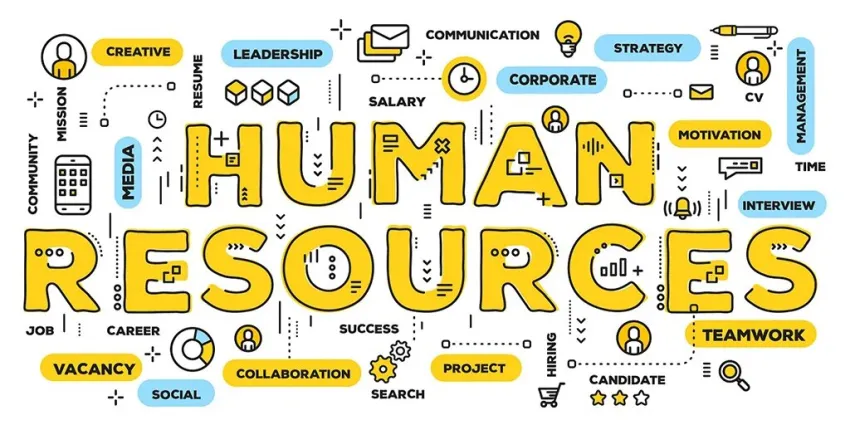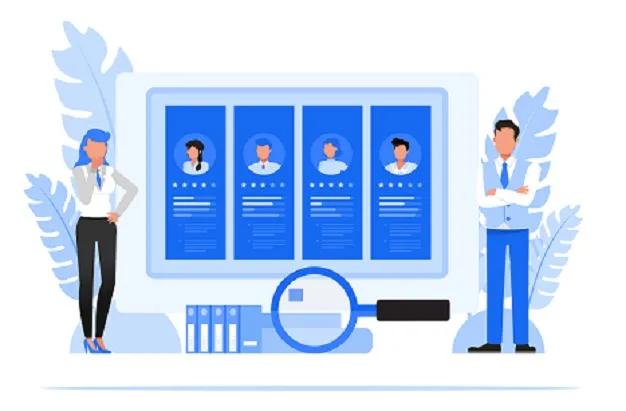
Menu

Menu

As we move into 2022, it’s a good time to reflect on the lessons of this past year and consider what these mean for our future. Moreover, the challenges and triumphs we experienced in 2021 have provided invaluable insights that can guide our path forward. For instance, the rapid acceleration of digital transformation highlighted the importance of adaptability in our personal and professional lives. Additionally, the emphasis on mental health and well-being underscored the need for supportive work environments that prioritize employee welfare. Consequently, as we analyze these key takeaways, we can better prepare ourselves for the uncertainties ahead while building resilient strategies that foster growth and innovation.
Possibly the most significant change during the year was the widespread recognition that working from home was feasible for far more individuals than had previously been thought. While this shift offered a sense of freedom and flexibility for some, for others, it introduced considerable challenges and strains. Moreover, many organizations found themselves unprepared, lacking formal policies to support remote working and providing insufficient resources for employees who struggled to adapt to this new reality. As a result, the need for comprehensive strategies and tools became increasingly evident, highlighting the importance of prioritizing employee well-being and establishing robust support systems in the evolving work landscape.

Given a choice, many companies would not have embraced working from home. However, circumstances have forced even the most resistant organizations to adapt their practices. While some suggest that remote work will become the new norm, it is more likely that organizations will seek a healthy balance over time. For instance, companies like Google, Twitter, and Capital One plan to retain work-from-home options. Nevertheless, working from home does not suit everyone or every organization.
As a result, the trend will likely evolve into a hybrid model. Some employees will choose to work several days from home, while others will prefer returning to the office. Ultimately, the focus will be on shared decisions between management and employees about when a particular setting best meets their needs for productivity and engagement.
Remote working and social distancing have significantly transformed the employee experience compared to what it was before the pandemic. Previously, we often took for granted that employees would interact naturally in and around the workplace. Additionally, we assumed that recruitment processes would invariably require face-to-face interactions, while activities like onboarding and training typically involved groups of people gathered in rooms, sharing knowledge and experiences. However, the current landscape has prompted a shift in how these processes are conducted, leading to new norms that prioritize flexibility and virtual collaboration.
Rethinking employee touchpoints has become crucial in today’s evolving work environment. Traditionally, leaders have emphasized the importance of team-building activities, which often included a variety of physical tasks and challenges set in competitively charged atmospheres. Moreover, relationship building between colleagues typically occurred during lunch breaks, over coffee, and through the ubiquitous office gossip. However, with the shift to remote and hybrid work, HR departments have had to re-envision these employee touchpoints. Consequently, they are now seeking to replace traditional interactions with positive virtual experiences. This new approach prioritizes well-being, encourages a balance between work and home life, and fosters interpersonal connections and collaboration among team members.

One positive impact of this shift has been the creation of a more level playing field for communication across diverse employee groups and locations. For instance, head office teams have begun collaborating and interacting online with front office employees, bridging gaps that previously existed. As a result, employees at all levels within the organization are participating in the same virtual calls to address business needs and network effectively. Not only do these social interactions enhance employee well-being, but they also play a fundamental role in attracting and retaining talent in the long term.
Furthermore, changing how people interact and communicate significantly influences company culture. Therefore, even as more employees return to the workplace, it seems inevitable that many of the new, less formal methods of communication and interaction will persist. In most cases, this evolution will foster a healthier communication culture within the organization.
As the pandemic took hold, HR was one of the first teams called to adapt to rapidly changing dynamics. HR found itself at the forefront of driving significant change while also implementing new working practices. This necessity for adaptability highlighted HR’s critical role in ensuring organizational resilience during challenging times. Furthermore, HR took the initiative to develop clear communication strategies that kept employees informed and engaged, fostering a sense of connection despite physical distance.
As a result, HR emerged as a key partner in shaping organizational culture and navigating the complexities of a new working landscape.
Suddenly, a situation that impacted the entire workforce and stripped away the freedom of choice meant that HR had to take center stage in providing the best way forward. As the pandemic unfolded, HR faced the dual challenge of meeting urgent business needs while also prioritizing the well-being of employees. Consequently, this heightened responsibility compelled HR professionals to develop innovative strategies and implement effective solutions that balanced organizational objectives with employee care. Furthermore, the need for flexibility and understanding became paramount, as HR worked diligently to navigate this unprecedented landscape.
More than ever before, HR teams have had to embrace not only their operational role but also the essential responsibility of ensuring employee well-being. In this context, they are tasked with supporting employees through challenging and life-altering experiences. Consequently, HR has become a vital advocate for mental health and resilience, fostering an environment where individuals feel valued and heard during these turbulent times.

Keeping company culture and values at the center of all activities has been a challenge for organizations with a remote and contingent workforce. As a result, HR is once again at the forefront of this effort. It plays a pivotal role in embedding company values into communication, working practices, policies, behaviors, and decision-making. By prioritizing these values, HR fosters a sense of unity and purpose. This focus is crucial for maintaining employee engagement and loyalty in a dispersed work environment.
Core activities such as recruitment and performance management traditionally relied on face-to-face personal interactions; however, the shift to remote work has necessitated that these activities, along with essential operational tasks, now depend on IT systems. This transition not only alters established processes but also demands significant upskilling of HR teams within a condensed timeframe. Consequently, HR professionals must quickly adapt to new technologies and digital tools, enabling them to effectively navigate this evolving landscape. As a result, organizations are now prioritizing continuous learning and development initiatives to equip their HR teams with the necessary skills to thrive in a digital-first environment.
In short, HR teams now need to possess a blend of digital skills and business acumen, requiring them to be agile, empathetic, and comfortable with ambiguity. Moreover, they must also embrace innovation as a core competency. Another essential skill for the future of HR is the ability to analyze data generated through increased digitization. This analytical capability not only helps organizations make better-informed decisions but also enables HR professionals to identify trends, optimize processes, and enhance employee engagement. By leveraging data effectively, HR teams can support strategic initiatives that align with organizational goals while fostering a more responsive and adaptive workplace culture.
However, this broad-brush approach often fails to account for the unique preferences, motivations, and needs of individual employees. As a result, many organisations have struggled to create truly personalised experiences that resonate on a deeper level. For instance, while a certain age group may exhibit common characteristics, there are always outliers whose preferences diverge from the norm. Therefore, businesses must look beyond demographic factors and consider a more nuanced understanding of their workforce. By embracing a culture of personalisation that values each employee’s individuality, organisations can foster greater engagement, satisfaction, and ultimately, retention. As we move forward, the ability to tailor workplace experiences and development opportunities to the specific needs of employees will become increasingly critical to driving organisational success.

One of the impacts of the pandemic has been to bring out the fundamental truth that employees of all ages can, and do, come together to face challenges, collaborate, and cooperate when given the opportunity. Moreover, all employees share the need to have a purpose, to be given opportunities for development and growth, and to experience good leadership. Consequently, diversity in the workforce is much more subtle and critical than merely focusing on which year the employee was born. Instead, it requires a deeper understanding of individual strengths, perspectives, and experiences that contribute to a thriving workplace culture. Therefore, organisations must prioritize creating an inclusive environment that values diverse contributions, ultimately leading to enhanced creativity, problem-solving, and overall success.
The pandemic has highlighted that employees of all ages can come together to face challenges, collaborate, and cooperate when given the opportunity. Moreover, all employees share the need for purpose, development opportunities, and good leadership. Consequently, workforce diversity is more nuanced than just focusing on birth years. Instead, it requires a deeper understanding of individual strengths, perspectives, and experiences that contribute to a thriving workplace culture. Therefore, organizations must prioritize creating an inclusive environment that values diverse contributions. This approach ultimately leads to enhanced creativity, problem-solving, and overall success.
The impact of remote working has increased focus on this area, and it is likely to continue to be a theme for HR in the coming year.
The HR function has had to embrace technology not as a “nice to have,” but rather as a critical transformational driver. Specifically, from automating paper-based tasks to creating efficiencies in processes, technology plays a vital role in streamlining operations. Additionally, it facilitates self-service for employees, which not only empowers them but also reduces the administrative burden on HR teams. Consequently, the HR function has had direct exposure to the profound impact of digitisation and automation on its ability to service both the organisation and the employee base effectively. By leveraging these technological advancements, HR can enhance overall productivity while improving the employee experience.

Alignment
Article
Audit
Automation
Benefits
Candidate
Communication
Compliance
Digitalisation
Digital Technology
Diversity
Emirates Id Application
Employee Experience
ESS
Feedback
Health and Safety
HRMS
HR Strategy
HR System UAE
Human Resource Management
Human Resource Management Systems
Job Roles
Learning and Development
Onboarding
Outsource
Payroll
Payroll Management System
Payroll Processing
Performance
Performance Management
Personalisation
Recruit
Recruiting
Recruitment
Remote Working
Rewards
Security
Service Providers
Skills
Smart
Survey
Virtual
Visa Cancellation
Work Environment
Workforce
© 2026 Pruvity HR Solutions Pvt Ltd, Madurai, India